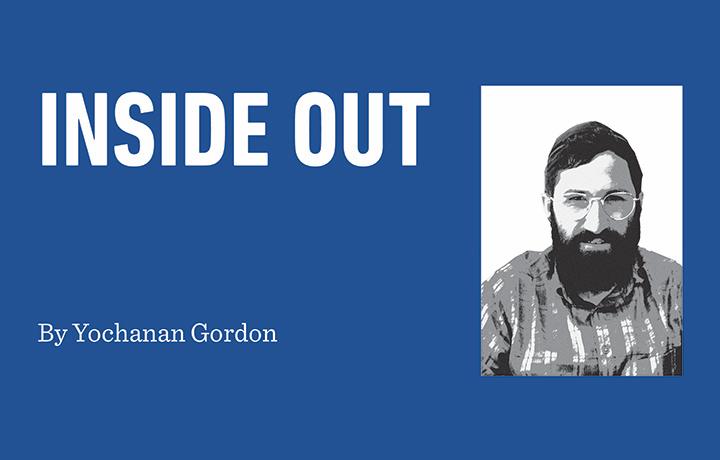Industrial Revolution 2.0
By Yochanan Gordon
Technological advances are unfolding at a pace never before imagined. What once took decades to evolve now seems to transform in a matter of months or even weeks. The way we live, work, and communicate is being reinvented in real time.
Understandably, there’s great suspicion surrounding the rise of artificial intelligence. Some worry it will destroy civilization as we know it. Don’t forget, there were serious voices not long ago warning that a U.S.-Israel strike on Iran’s nuclear arsenal could spark World War III. The point is: a lot of the pomp and panic surrounding such developments is often exaggerated.
Still, even if you don’t buy into the more extreme scenarios, AI has triggered a deeper discomfort, especially from a spiritual standpoint. In many religious circles, AI is looked at with even more suspicion than the internet was when it first emerged into the mainstream 25 to 30 years ago. There’s something unsettling about machines that think, tools that blur the line between man and machine.
And yes, the internet, social media, and AI have all played a role in the moral and spiritual decline of our generation. They’ve distracted, divided, and often derailed people from a life of focus, faith, and purpose. But everything in this world holds the potential to be used in one of two ways. Nothing is inherently evil—only misplaced.
I’ve long maintained that G-d created the internet, just as He created everything else. He facilitated the rise of social media, and now artificial intelligence—not to ensnare us, but to move us closer to the purpose of creation: to build a perfected world, a home for His presence. These tools, while potent and dangerous in the wrong hands, can just as easily be harnessed for redemption.
The Torah in Bereishis tells us that on the second day of creation, G-d separated the upper and lower waters. As we approach Tishah B’Av—the day that marks the destruction of the Beis HaMikdash—we read in Tehillim: “By the rivers of Babylon, there we sat and also wept when we remembered Zion.”
The word “also” seems redundant. Who else was crying?
The Chiddushei HaRim of Ger explains that the waters themselves were crying. When G-d separated the upper and lower waters, the lower waters protested. They too wanted to remain close to the King. G-d consoled them with a promise: one day, they would be used in the service of the Beis HaMikdash—specifically in the water libations poured on the altar during Sukkos. But when the Temple was destroyed and the altar fell silent, their mission was lost. And so, the waters wept with us.
In a mystical sense, this isn’t just about water. It’s about all of creation. Every element of the physical world—every branch of wisdom, every scientific discovery—carries within it a yearning to reconnect to its Source. The Hebrew word for “tear” (dema) shares the same letters as mada, the word for science. That’s not just poetic—it’s prophetic.
There’s a teaching that the cry of the lower waters is the collective cry of chochmah chitzonis, the external wisdoms of the world, longing to be reunited with chochmas haTorah, the upper waters. We often look at science and secular wisdom as being outside of G-d, as forces that pull people away from a life of faith. But at its root, mada longs to be elevated—to be rejoined with holiness, to serve its true purpose.
There’s a famous Zohar in Parshas Noach that speaks about the 600th year of the sixth millennium—around the year 1840—when “the fountains of the deep and the windows of heaven” would burst open, flooding the world with wisdom from above and below. Kabbalists understand this to refer to the Industrial Revolution. That era changed the pace of progress: people traveled by train and plane instead of horse and buggy, machines began performing tasks in factories that once took many human hands and hours. It was a flood—not of water, but of industry. And it changed the world.
Artificial intelligence is, in many ways, Industrial Revolution 2.0. But instead of mechanizing the body, it’s automating the mind. The ability for machines to think, write, analyze, and create means we are being freed—freed not for idleness, but for avodas Hashem. This, too, is a taste of the world to come, when “the knowledge of G-d will fill the earth like water covers the seabed,” and humanity will no longer be enslaved by the struggle to survive.
King David writes in Tehillim, “When G-d will return the captives of Zion, we will be like dreamers.” In the future, we’ll look back on exile and realize it was all a dream. Today’s reality—with its hierarchy of spirituality, its visible divides between those who appear close to G-d and those who seem far removed—will be seen in hindsight as just that: a fleeting illusion.
With the rebuilding of the Beis HaMikdash, a new clarity will emerge. What seemed separate will be reunited. What was used to divide will be used to build. The prophet describes that future Temple as “a house of prayer for all nations.” In that light, even science—even AI—may finally find its place.
Yochanan Gordon can be reached at [email protected]. Read more of Yochanan’s articles at 5TJT.com.










